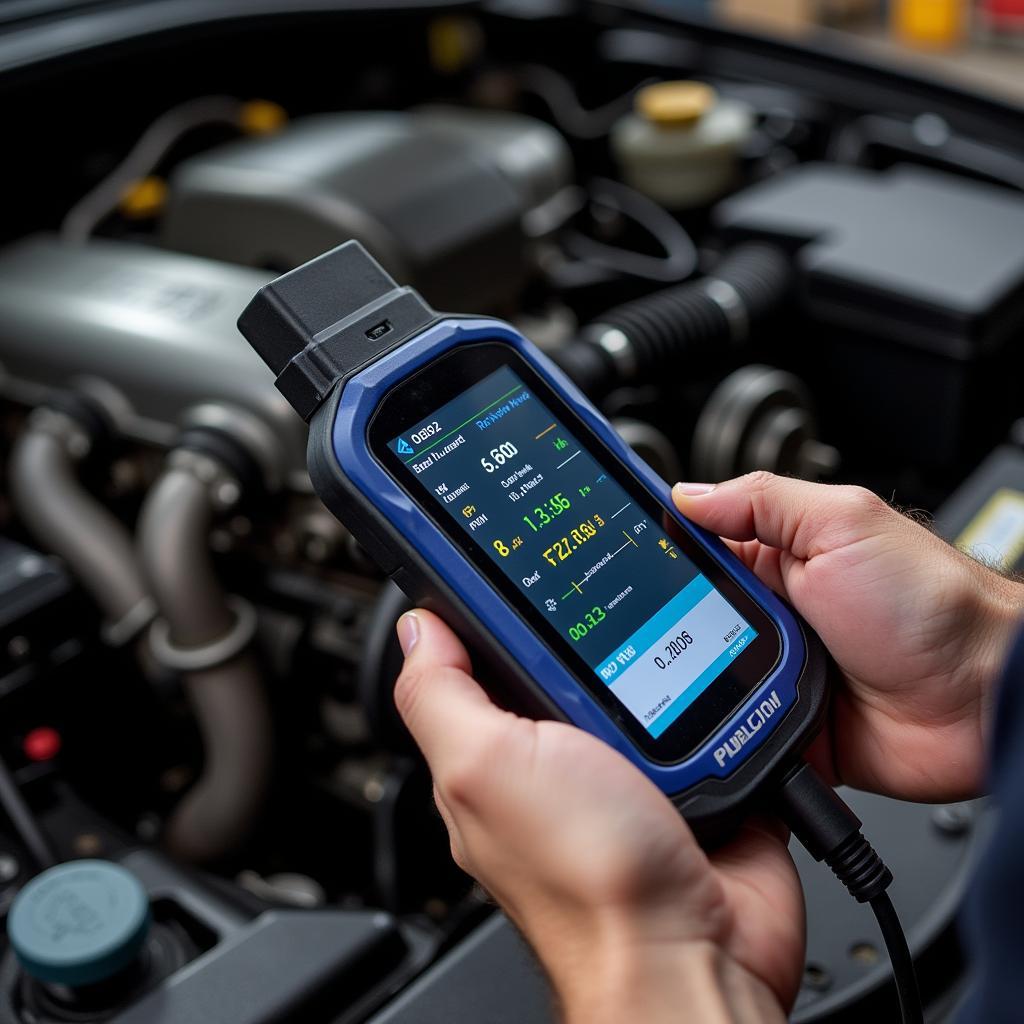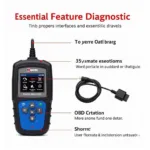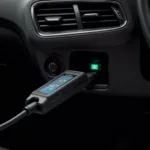When it comes to turbocharged engines, precision diagnostics are key. A regular OBD2 scanner might cut it for basic issues, but a turbocharged system operates under higher pressures and demands a more comprehensive diagnostic tool. That’s where the best OBD2 scanner for turbos comes in.
Choosing the right scanner can be the difference between a quick fix and a frustrating guessing game. This guide will equip you with the knowledge to make an informed decision, helping you find the perfect scanner to keep your turbocharged engine running smoothly.
Why You Need a Specialized OBD2 Scanner for Turbos
Turbochargers are intricate systems that require specific data points for accurate diagnostics. A standard OBD2 scanner might show you generic engine codes, but it won’t necessarily pinpoint issues unique to your turbo system. Here’s why a specialized scanner is essential:
- Boost Pressure Monitoring: Turbochargers increase engine power by forcing more air into the cylinders. A specialized OBD2 scanner can monitor boost pressure in real-time, helping you identify overboost or underboost conditions that could indicate a problem.
- Wastegate Function: The wastegate regulates boost pressure by controlling the flow of exhaust gases. A specialized scanner can read data from the wastegate, allowing you to diagnose issues with its operation.
- Temperature Monitoring: Turbochargers generate significant heat. Your scanner should be able to track exhaust gas temperatures and other critical temperature readings to prevent overheating and potential engine damage.
Key Features to Look for in an OBD2 Scanner for Turbos
Not all OBD2 scanners are created equal. When searching for the best OBD2 scanner for turbos, consider these key features:
1. Turbo-Specific Parameters:
Ensure the scanner can read and display parameters specific to turbocharged engines, such as:
- Boost Pressure
- Wastegate Duty Cycle
- Intake Air Temperature
- Mass Air Flow (MAF) Sensor Readings
- Oxygen Sensor (O2) Readings
2. Compatibility:
Verify the scanner is compatible with your car’s make, model, and year. Some scanners are designed for specific vehicle manufacturers, while others offer broader compatibility.
3. Live Data Streaming:
Real-time data is crucial for diagnosing turbocharger issues. Opt for a scanner that displays live data streams from multiple sensors simultaneously. This allows you to observe how different engine parameters interact.
4. Data Logging:
Data logging capability is essential for capturing intermittent issues. A scanner with data logging allows you to record engine data over time, which can be invaluable for identifying problems that only occur under specific driving conditions.
5. User-Friendly Interface:
The best OBD2 scanners have intuitive interfaces that are easy to navigate. Look for scanners with clear menus, logical layouts, and easy-to-understand data displays.
Top Recommendations for Turbocharged Engines
Expert Insight: “When recommending OBD2 scanners for turbocharged engines, I always prioritize scanners that offer comprehensive turbo-specific parameters, live data streaming, and data logging capabilities. A user-friendly interface is crucial for both novice and experienced users.” – John Miller, Senior Automotive Diagnostic Technician
Beyond Diagnostics: Additional Benefits
The best OBD2 scanners for turbos go beyond simply reading and clearing codes. Here are some additional benefits:
- Performance Tuning: Some scanners allow you to adjust certain engine parameters, such as fuel-to-air ratios, to optimize performance.
- Maintenance Reminders: Set service reminders based on mileage or time intervals to stay on top of regular maintenance.
- Emission Readiness Checks: Ensure your vehicle is ready for emissions testing by running onboard diagnostics.
FAQs
Q: Can I use any OBD2 scanner for my turbocharged car?
A: While a standard OBD2 scanner can read basic engine codes, it’s highly recommended to use a specialized scanner for turbocharged engines. This will allow you to access turbo-specific parameters and perform more accurate diagnostics.
Q: What is boost leak, and can an OBD2 scanner detect it?
A: A boost leak occurs when pressurized air escapes from the turbocharger system. While an OBD2 scanner can’t pinpoint the exact location of a leak, it can detect a drop in boost pressure, indicating a potential leak.
Q: How often should I scan my turbocharged engine?
A: It’s good practice to scan your engine periodically, especially if you notice any performance issues or warning lights on your dashboard. Regular scanning can help you identify problems early on, preventing costly repairs.
Need Help Choosing the Right Scanner?
Selecting the best OBD2 scanner for turbos can seem daunting, but it doesn’t have to be. We’re here to help! Contact our expert team via WhatsApp: +1(641)206-8880, Email: [email protected]. We offer 24/7 support and are happy to answer any questions you may have.


